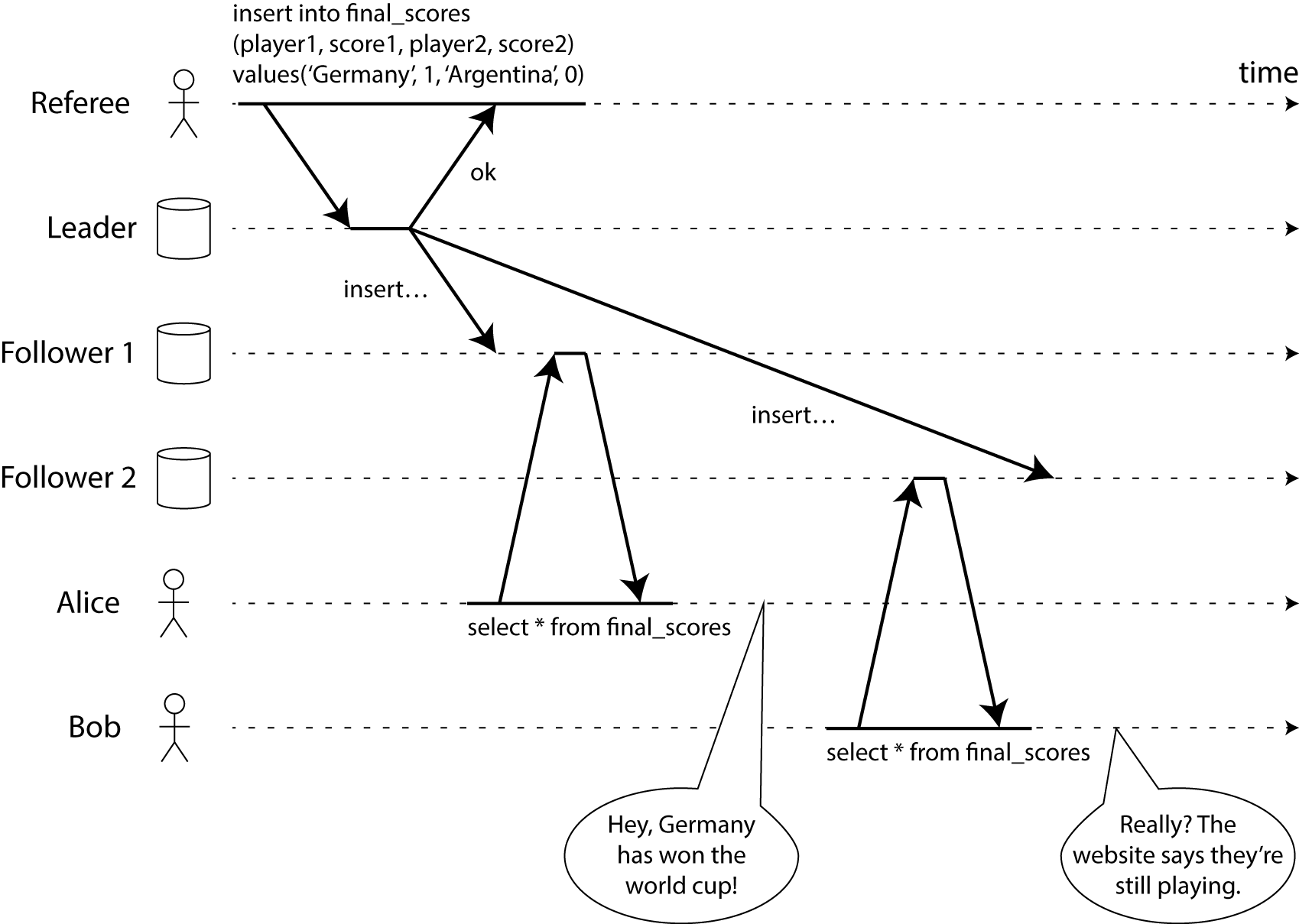...
As we know the leader controller always sees the latest change, where there is always a certain lag between its own log and the followers. If we redirect all the log read request to the leader, it will get overloaded for sure; if we allow reading from secondary copy, like observer reading from follower, or client reading from observer, there is no way to guarantee linearizable result. Consider a case where there is one event for a football game final score, the message gets written to the leader, and successfully replicated to the follower majority, which is then visible to the client. But the second read request being sent to a slow follower may not receive this message yet, so the result will show that the game hasn't stopped yet, which is inconsistent and a violation of linearizability.
Public Interfaces
Briefly list any new interfaces that will be introduced as part of this proposal or any existing interfaces that will be removed or changed. The purpose of this section is to concisely call out the public contract that will come along with this feature.
A public interface is any change to the following:
...
Binary log format
...
The network protocol and api behavior
...
Any class in the public packages under clientsConfiguration, especially client configuration
org/apache/kafka/common/serialization
org/apache/kafka/common
org/apache/kafka/common/errors
org/apache/kafka/clients/producer
org/apache/kafka/clients/consumer (eventually, once stable)
...
Monitoring
...
Command line tools and arguments
We plan to a flag to the Vote RPC to indicate whether this request is a pre-vote:
| Code Block |
|---|
{
"apiKey": 50,
"type": "request",
"name": "VoteRequest",
"validVersions": "0",
"flexibleVersions": "0+",
"fields": [
{ "name": "ClusterId", "type": "string", "versions": "0+",
"nullableVersions": "0+", "default": "null"},
{ "name": "Topics", "type": "[]TopicData",
"versions": "0+", "fields": [
{ "name": "TopicName", "type": "string", "versions": "0+", "entityType": "topicName",
"about": "The topic name." },
{ "name": "Partitions", "type": "[]PartitionData",
"versions": "0+", "fields": [
{ "name": "PartitionIndex", "type": "int32", "versions": "0+",
"about": "The partition index." },
{ "name": "CandidateEpoch", "type": "int32", "versions": "0+",
"about": "The bumped epoch of the candidate sending the request"},
{ "name": "CandidateId", "type": "int32", "versions": "0+",
"about": "The ID of the voter sending the request"},
{ "name": "LastOffsetEpoch", "type": "int32", "versions": "0+",
"about": "The epoch of the last record written to the metadata log"},
{ "name": "LastOffset", "type": "int64", "versions": "0+",
"about": "The offset of the last record written to the metadata log"},
{ "name": "PreVote", "type": "boolean", "versions": "0+",
"about": "Suggest whether given request is a prevote"},
]
}
]
}
]
}
|
...
Compatibility, Deprecation, and Migration Plan
...
If there are alternative ways of accomplishing the same thing, what were they? The purpose of this section is to motivate why the design is the way it is and not some other way.
Citation
Please stop calling databases CP or AP, Published by Martin Kleppmann on 11 May 2015
